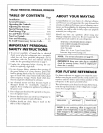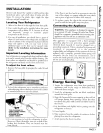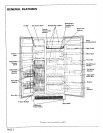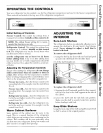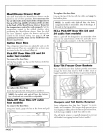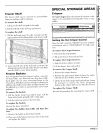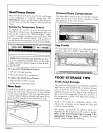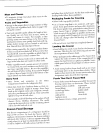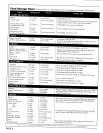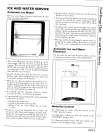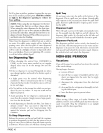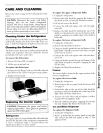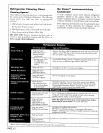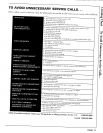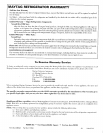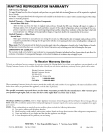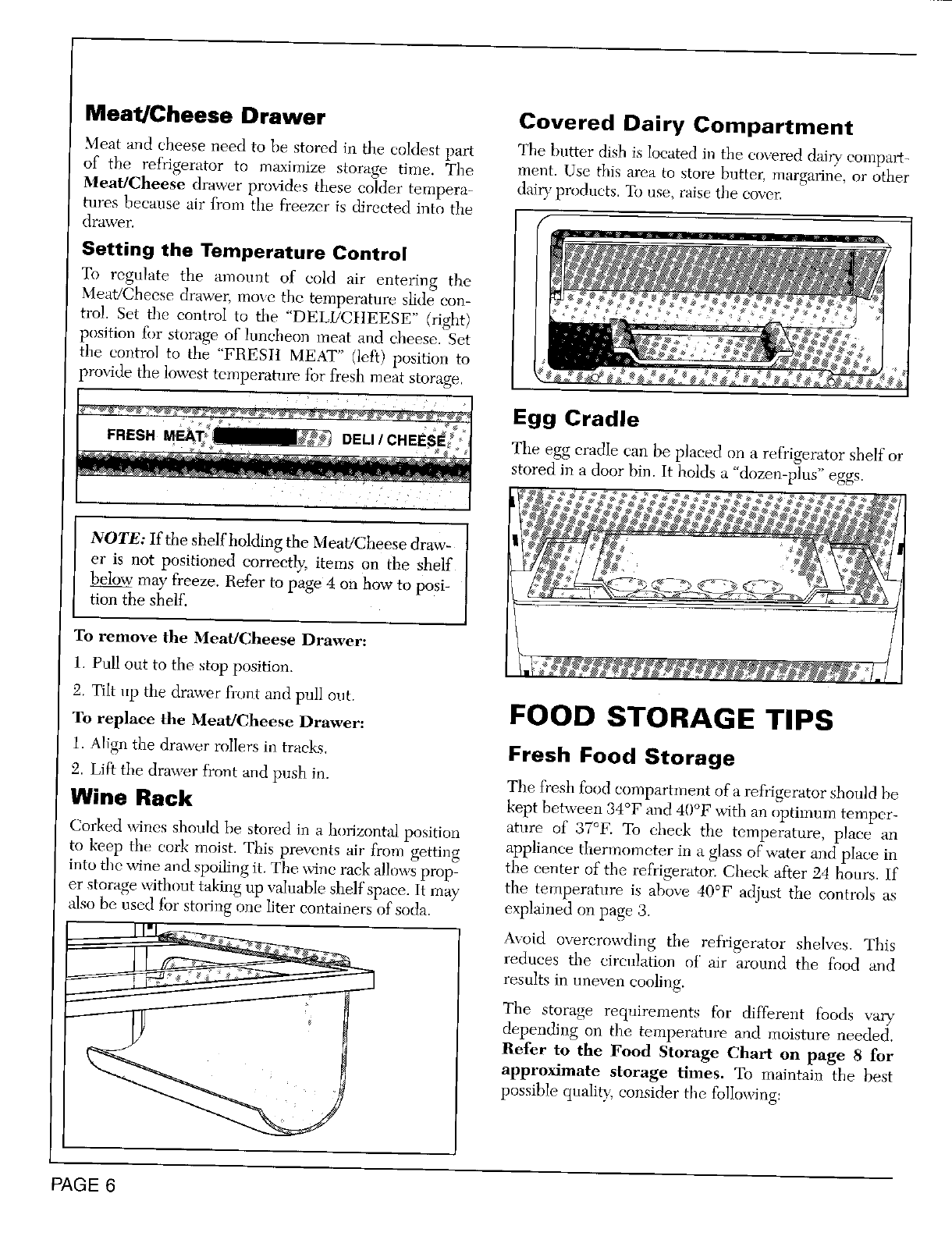
Meat/Cheese Drawer Covered Dairy Compartment
Meat and cheese need to be stored in the coldest part The butter dish is located in the covered daiJy eompart-
of the refrigerator to maximize storage time. The ment. Use this area to store butter, margarine, or other
Meat/Cheese drawer pro,Ades these colder tempera- dai_y products. To use, raise the cover.
tnres because air fi'om the freezer is directed into the
drawee
Setting the Temperature Control
To regulate the amount of cold air entering the
Meat/Cheese drawer, move the temperature slide con-
trol. Set the control to the "DELI/CItEESE" (right)
positkm for storage of luncheon meat and cheese. Set
the control to the "FRESIt MEAT" (left) position to
provide the lowest temperature for fresh meat storage.
Egg Cradle
The egg cradle can be placed on a refrigerator shelf or
stored in a door bin. It holds a "dozen-plus" eggs.
NOTE: If the shelf holding the Meat/Cheese draw-
er is not positioned correctly, items on the shelf ]
below may freeze. Refer to page 4 on how to posi-
_he shelf.
To remove the Meat/Cheese Drawer:
1. Pull out to the stop position.
'2. Tilt up the drawer front and pull out.
To replace the MeaUCheese Drawer: FOOD STORAGE TIPS
1. Align the drawer rollers in tracks. Fresh Food Storage
'2. Lit} the drawer front and push in. The fresh food compartment of a refrigerator should be
Wine Rack kept between 34°F and 40°F with an optimum temper-
Corked wines shonld be stored in a horizontal position atnre of 37°F. To check the temperature, place an
to keep the cork moist. This prevents air from getting appliance thermometer in a glass of water and place in
into the wine and spoiling it. The wine rack allows prop- the center of the refrigerator. Cheek after 24 hours. If
er storage without taking up vabmble shelf space. It may the temperature is above 40°F adjust the controls as
also be used J{brstoring one liter containers of soda. explained on page 3.
Avoid overcrowding the refrigerator shelves. This
reduces the circulation of air around the food and
results in uneven cooling.
The storage requirements for different foods vary
depending on the temperature and moisture needed.
Refer to the Food Storage Chart on page 8 for
approximate storage times. To maintain the best
possible quality; consider the following:
PAGE 6



